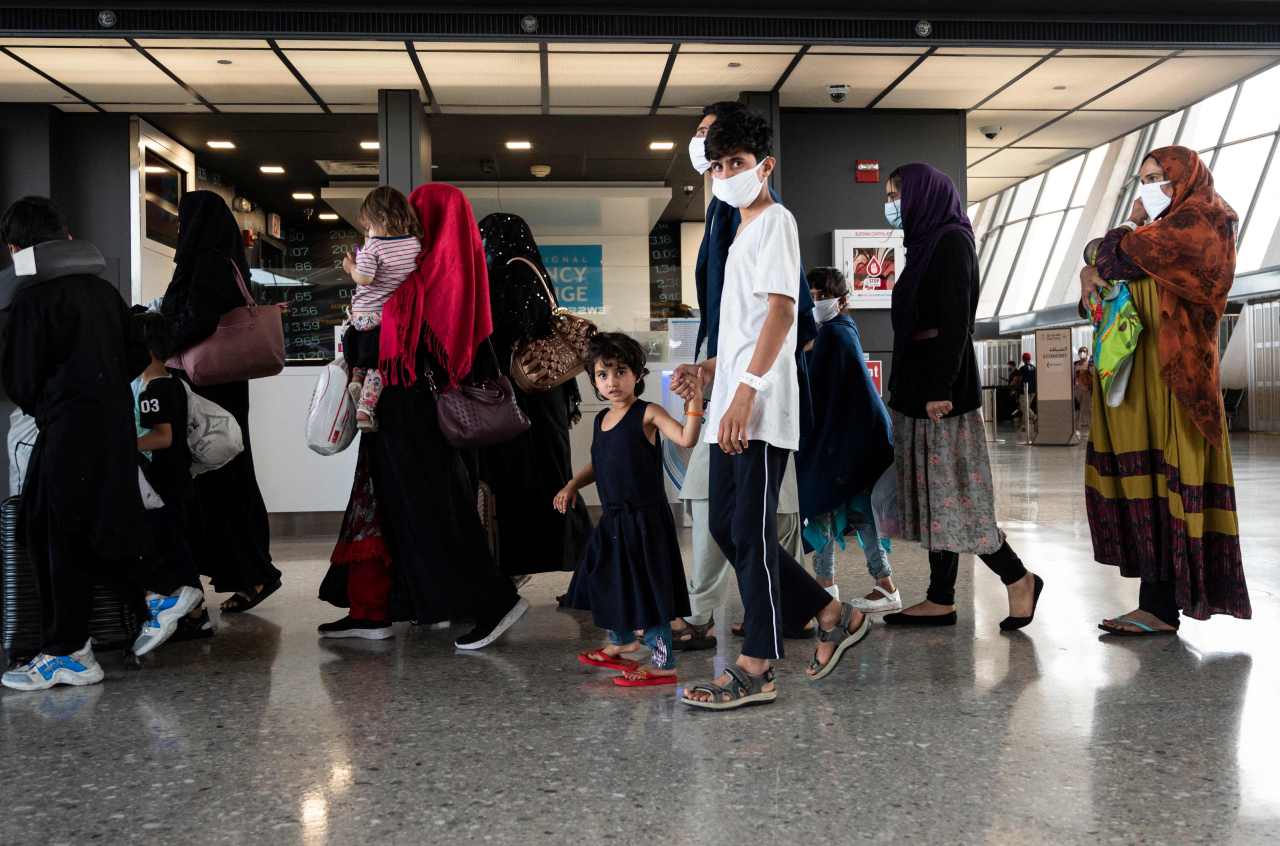South Korea considering evacuating ‘Afghan allies’: top security adviser
Government still cautious about accepting asylum seekers from Afghanistan
By Lee Ji-yoonPublished : Aug. 24, 2021 - 14:54

South Korea is considering evacuating some 400 Afghans who helped the reconstruction efforts there and are now targets for Taliban revenge. Still, the government appears cautious about welcoming refugees from Afghanistan.
President Moon Jae-in’s top security adviser, Suh Hoon, said Monday that the government was reviewing all possible options to assist Korea’s “Afghan allies” -- referring to translators, medical personnel and engineers who had been hired to work at Korean facilities there.
“We have a national obligation to provide them with a safe haven. We are considering diverse measures, including bringing them here,” Suh said in a parliamentary session.
“Given the Aug. 31 deadline for the withdrawal of American troops, we need to speed up discussions.”
There are an estimated 400 people remaining in Afghanistan who worked for the Korean government over the past 20 years, more recently on reconstruction projects such as building hospitals or schools there. With the country in the hands of the Taliban, many are said to be seeking relocation to Korea.
The Foreign Ministry also confirmed that it was continuing related talks with allies through diverse diplomatic channels.
Other than those Afghans who helped Korea, Suh showed a cautious approach toward accepting asylum seekers from Afghanistan.
“That is a very complicated and difficult issue that requires to consider diverse aspects, including our people’s acceptance,” he said when asked if the government was willing to accept Afghan refugees.
“For now, an urgent issue is assisting Afghans who had helped us.”
Responding to a recent Wall Street Journal report that the US was considering using American military bases in Korea to house evacuees from Afghanistan, Suh said the government had not yet been informed about the plans.
“In the process of bringing evacuees to the US, they may be relocating them in transit countries and related talks are underway,” he said.
“Ultimately, they are likely to use bases in the Middle East or Europe due to geographical proximity and convenience.”
Even if the US decided to use its Korean bases, it would need consent from the Korean government, he added.
On Tuesday the Justice Ministry said it was making “multifaceted preparations” for the potential transport of Afghans who had helped Korea.
Justice Minister Park Beom-kye hinted that the ministry was reviewing granting special stay permits to Afghans residing in the country. Currently, about 400 Afghans are staying here, according to government figures.
The government may apply the same humanitarian standard to Afghan nationals that it used for citizens of Myanmar after the military coup there earlier this year.
President Moon Jae-in’s top security adviser, Suh Hoon, said Monday that the government was reviewing all possible options to assist Korea’s “Afghan allies” -- referring to translators, medical personnel and engineers who had been hired to work at Korean facilities there.
“We have a national obligation to provide them with a safe haven. We are considering diverse measures, including bringing them here,” Suh said in a parliamentary session.
“Given the Aug. 31 deadline for the withdrawal of American troops, we need to speed up discussions.”
There are an estimated 400 people remaining in Afghanistan who worked for the Korean government over the past 20 years, more recently on reconstruction projects such as building hospitals or schools there. With the country in the hands of the Taliban, many are said to be seeking relocation to Korea.
The Foreign Ministry also confirmed that it was continuing related talks with allies through diverse diplomatic channels.
Other than those Afghans who helped Korea, Suh showed a cautious approach toward accepting asylum seekers from Afghanistan.
“That is a very complicated and difficult issue that requires to consider diverse aspects, including our people’s acceptance,” he said when asked if the government was willing to accept Afghan refugees.
“For now, an urgent issue is assisting Afghans who had helped us.”
Responding to a recent Wall Street Journal report that the US was considering using American military bases in Korea to house evacuees from Afghanistan, Suh said the government had not yet been informed about the plans.
“In the process of bringing evacuees to the US, they may be relocating them in transit countries and related talks are underway,” he said.
“Ultimately, they are likely to use bases in the Middle East or Europe due to geographical proximity and convenience.”
Even if the US decided to use its Korean bases, it would need consent from the Korean government, he added.
On Tuesday the Justice Ministry said it was making “multifaceted preparations” for the potential transport of Afghans who had helped Korea.
Justice Minister Park Beom-kye hinted that the ministry was reviewing granting special stay permits to Afghans residing in the country. Currently, about 400 Afghans are staying here, according to government figures.
The government may apply the same humanitarian standard to Afghan nationals that it used for citizens of Myanmar after the military coup there earlier this year.









![[Kim Seong-kon] Democracy and the future of South Korea](http://res.heraldm.com/phpwas/restmb_idxmake.php?idx=644&simg=/content/image/2024/04/16/20240416050802_0.jpg&u=)








![[KH Explains] Hyundai's full hybrid edge to pay off amid slow transition to pure EVs](http://res.heraldm.com/phpwas/restmb_idxmake.php?idx=652&simg=/content/image/2024/04/18/20240418050645_0.jpg&u=20240418181020)

![[Today’s K-pop] Zico drops snippet of collaboration with Jennie](http://res.heraldm.com/phpwas/restmb_idxmake.php?idx=642&simg=/content/image/2024/04/18/20240418050702_0.jpg&u=)